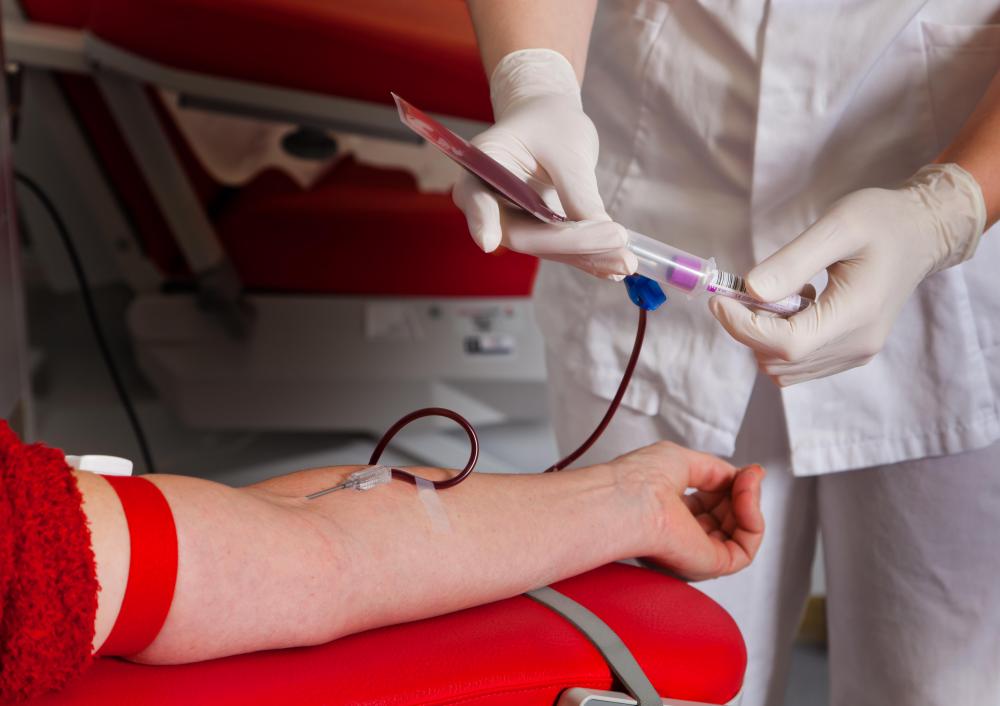At WiseGEEK, we're committed to delivering accurate, trustworthy information. Our expert-authored content is rigorously fact-checked and sourced from credible authorities. Discover how we uphold the highest standards in providing you with reliable knowledge.
What are the Different Kinds of Gonorrhea Treatment?
Gonorrhea is a very common sexually transmitted disease that usually responds to a simple, straightforward treatment plan. Once an individual is diagnosed, his or her physician will most likely begin gonorrhea treatment immediately in order to avoid complications that can damage the reproductive system, or spread infection in the body. Gonorrhea is caused by harmful bacteria, and the most common remedy is a round of antibiotics. The type of medication prescribed for gonorrhea treatment depends on a host of variables, including the patient's location on the globe, the site of the infection, and whether or not the subject is pregnant. A medical professional can help the patient determine which combination of oral or injected antibiotic therapy is appropriate for his or her individual situation.
Untreated gonorrhea can lead to medical conditions with serious ramifications on the body. Pelvic Inflammatory Disease is one complication of gonorrhea in women, causing chronic pain and infertility, and increasing the victim's risk of miscarriage or ectopic pregnancy, where the egg attaches itself outside of the uterus. A pregnant woman infected with untreated gonorrhea is at risk for preterm labor and premature rupture of the amniotic membranes. She can also pass her gonorrhea infection to her baby. Without treatment, the newborn can develop complications like blindness or meningitis.

The geographical location of the patient is one variable that determines which antibiotic therapy is appropriate for gonorrhea treatment. The gonorrhea bacteria is becoming resistant to antibiotics, and different areas of the world observe varying levels of resistance. Gonorrhea in the United Kingdom, the United States, and Asia has largely developed resistance to fluoroquinolones, a type of antibiotic. In 2007, the United States Center for Disease Control halted fluoroquinolones therapy in the United States, leaving only one class of antibiotics, cephalosporins, available for gonorrhea treatment. Patients allergic to cephalosporins can discuss with their care providers whether treatment with another antibiotic, such as azithromycin, may be appropriate or effective.

Gonorrhea bacteria can infect different parts of the body, including the rectum, the throat, the penis, and the female reproductive system. Gonorrhea in the throat can be difficult to cure, and antibiotic therapy may be ineffective or take several rounds of treatment. Bacteria produced in the rectum can destroy some antibiotics like penicillin, making the medication ineffective. A medical professional is required to assess the extent of the gonorrhea infection and prescribe a combination of antibiotics that will attack and destroy the bacteria. Follow up treatments might be required if the infection proves difficult to treat.

Pregnancy brings yet another perspective to gonorrhea treatment. The woman's health care provider must choose an antibiotic that is safe during pregnancy. The mother's gonorrhea can infect her newborn baby during delivery. It is recommended that a baby born to a woman with active, untreated gonorrhea be given antibiotic therapy as soon as possible, and antibiotic eye ointment immediately following birth can prevent vision complications in the infant.
AS FEATURED ON:
AS FEATURED ON:















Discussion Comments
I have a friend who was trying to get pregnant with her husband. They tried and tried and tried, but she was not getting pregnant. They finally decided to have fertility tests done, and they learned that he was not able to have kids.
Unknown to my friend, he had had several sexually transmitted diseases including gonorrhea when he was younger, and he had not always been treated quickly. As a result of all of these diseases he was left infertile, so they cannot have a baby.
@Laotionne - Yes, gonorrhea can be spread through oral sex. When I was in college a group of us went to Florida for a football bowl game. While we were there, we did way too much partying, and some of the guys I was with went way overboard. To make a long story short, some of them got wasted and drove to the seedier side of town where they hooked up with some prostitutes.
They had oral sex performed on them and a couple of the guys did not use condoms. They were surprised when they later went to the doctor and were told that the symptoms they were experiencing were being caused by gonorrhea. As this article says, the gonorrhea treatment was straightforward and simple, but those guys were really embarrassed, and we still remind them of that trip even today.
I had no idea that there was such a condition as gonorrhea in the throat. Does this mean that gonorrhea symptoms can result after oral sex if one of the sex partners has this condition? I think many people assume that oral sex is much safer than traditional sex, especially for the receiver of oral sex.
Post your comments